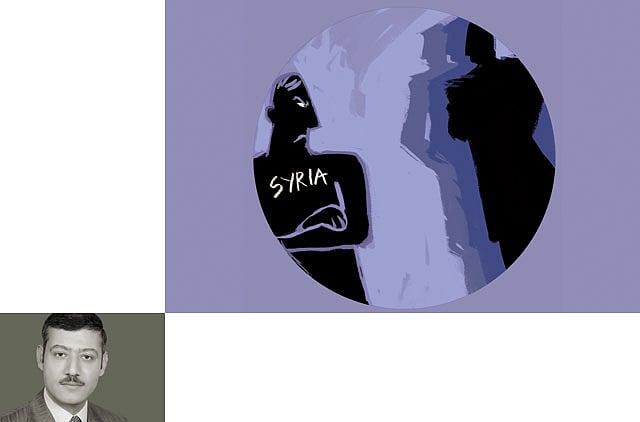Just two years after it broke out of its isolation, Syria's regional and international relations have suffered a new setback. Following the invasion of Iraq in 2003, former US president George W. Bush targeted the Syrian government with a set of economic and diplomatic sanctions.
The Syria Accountability Act was intended to punish Syria for its anti-war position and for assisting the Iraqi resistance against the US occupation. Europe, particularly France, followed suit after the assassination of former Lebanese prime minister Rafik Hariri for which Syria was initially blamed. Damascus was further isolated after the July 2006 war in Lebanon. Most of the ‘moderate' Arab governments blamed Syria and Hezbollah for precipitating the Israeli assault on Lebanon and as a consequence boycotted Damascus. A handful of lightweight Arab leaders attended the Damascus Arab Summit of 2008. Syria tried to compensate by strengthening ties with both Iran and Turkey, which became its two major regional friends.
This situation changed dramatically however when Turkey announced the resumption of indirect peace talks between Syria and Israel in the summer of 2008. The departure of George W. Bush and then French president Jacques Chirac facilitated the return of Syria to the international community. Their successors, Barack Obama and Nicolas Sarkozy, showed more willingness to work with Syria in the Middle East. America decided in late 2010 to return its ambassador, withdrawn by the Bush administration, to Damascus. President Bashar Al Assad was invited to Paris in July 2008 to attend the Union for the Mediterranean summit. Sarkozy visited Damascus twice in late 2008 and early 2009 and the EU spent most of that year trying to persuade Syria to sign the Association Agreement — frozen by Brussels a few years earlier.
Conspiracy theory
Syria's Arab relations improved, too. King Abdullah Bin Abdul Aziz of Saudi Arabia visited Damascus in the fall of 2009 for the first time since he became king in 2005. Relations with Turkey continued to expand. In 2010, the two countries established the Supreme Council for Strategic Cooperation. In brief, Syria's regional and international relations seemed, to say the least, at their best in a decade when the Syrian protest movement broke out last March.
Five years of hard work have been wasted. Taken by surprise, the regime embraced the conspiracy theory to explain and justify its quashing of the protest movement. The heavy-handed security approach against protesters prompted a wave of international condemnation.
Indeed, as we have mentioned repeatedly over the past months, the Syrian protest movement consists of two parts. The first is genuine grievances by the majority of the population. The second is the interests of the regime's enemies. The regime's many hard-core enemies have naturally seized the opportunity to finish some unfinished businesses; yet, ascribing much of the strife to the exiled opposition and hostile foreign parties was a mistake. The international community dismissed the current blend of brutal force, disinformation and minor concessions as mere tactics to avoid introducing genuine reform. Arab, regional and international actors have so far imposed punitive economic and diplomatic measures to force a change in policy. Four of the six GCC countries have withdrawn their ambassadors from Damascus. The US and the EU went a step further by officially implementing an oil embargo against exports of Syrian crude. Top Syrian officials and businessmen have also been subjected to various sanctions. Even Turkey, Syria's closest ally, has started to threaten punitive measures. Syria's latest diplomatic blunder was with the Arab League. Recently, Damascus agreed to the Arab League initiative to resolve the Syrian crisis. That included halting violence from all sides, withdrawing the army from the cities, releasing all political prisoners, allowing Arab and international media to enter the country and cover the Syrian events unhindered; and finally start a dialogue between the Syrian regime and the opposition in Cairo under the auspices of the Arab League. The failure of the regime to implement any of the agreement's provisions angered the Arab League. Secretary General Nabeel Al Arabi expressed his frustration in public and hinted at punitive measures while calling for an emergency meeting of the Arab League on Saturday.
In brief, the mishandling of the crisis has led to a widening of the schism between the regime and the people and has also drawn Syria back into international isolation. If the regime stays the course and continues using this policy, however, it might very well end up losing much more than just good foreign relations.
Dr Marwan Kabalan is Dean of Faculty of International Relations and Diplomacy, Kalamoon University, Damascus, Syria.
Sign up for the Daily Briefing
Get the latest news and updates straight to your inbox
Network Links
GN StoreDownload our app
© Al Nisr Publishing LLC 2026. All rights reserved.
